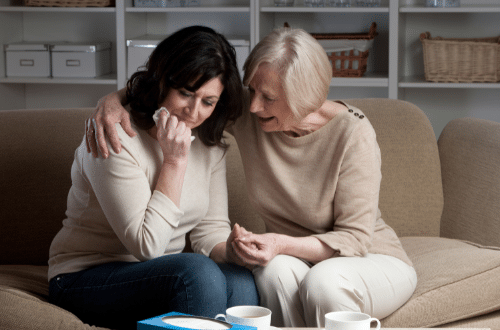
Loss is an inevitable part of life, but that doesn’t make it any easier to face. Whether it’s the loss of a loved one, a relationship, or even a sense of identity or purpose, grief can leave you feeling overwhelmed and untethered. While everyone’s experience with loss is unique, finding healthy ways to cope is an essential part of healing and rebuilding.
At the Wellness Institute of Southern Nevada, I help individuals navigate the complex emotions that come with loss. Through compassionate guidance and practical strategies, I aim to create a safe space where you can process your feelings, find meaning in your grief, and move forward at your own pace. Together, we’ll explore how to approach loss in a way that honors your journey while fostering resilience and hope.
I. Understanding the Grieving Process
Grief is a natural and deeply personal response to loss. It often feels overwhelming, yet it’s an essential part of the healing journey. Many people are familiar with the concept of the five stages of grief—denial, anger, bargaining, depression, and acceptance—but it’s important to understand that these stages don’t always follow a linear path. You may move back and forth between stages or experience multiple emotions at once.
Loss affects everyone differently. Some may feel intense sadness, others may experience numbness, and still others may express their grief through anger or guilt. Grief can also manifest physically, with symptoms like fatigue, changes in appetite, or difficulty sleeping. Recognizing these emotional and physical responses as normal can help you feel less isolated in your experience.
At its core, grief is a process of adaptation. It’s not about “getting over” your loss but learning how to live with it in a way that allows you to honor what was lost while continuing to grow and heal.
II. The Importance of Allowing Yourself to Grieve
One of the most important steps in coping with loss is giving yourself permission to grieve. Society often places pressure on people to “move on” quickly or to suppress their emotions, especially in cultures where vulnerability may be viewed as a sign of weakness. This can lead to feelings of shame or guilt for experiencing grief.
Allowing yourself to feel the full spectrum of emotions—sadness, anger, confusion, even moments of relief—is an essential part of the healing process. Ignoring or suppressing these feelings can prolong the grieving process and make it more difficult to work through.
Grieving is not a one-size-fits-all experience. What works for one person may not work for another, and that’s okay. Some people find comfort in talking about their loss, while others may prefer solitude. The key is to create space for your emotions in a way that feels right for you.
By acknowledging and accepting your grief, you can begin to find a sense of balance and eventually start to heal. It’s not about eliminating the pain but learning to coexist with it in a way that honors your loss while allowing you to move forward.
III. Building a Support System
Grief can feel isolating, but it’s important to remember that you don’t have to navigate it alone. Building a support system can provide the emotional connection and encouragement needed during this challenging time. Surrounding yourself with people who listen without judgment can create a safe space for you to share your feelings openly.
Family and friends often serve as the first line of support, but it’s okay if you need more. Support groups, whether in person or online, can connect you with others who understand your experience. Talking to those who have faced similar losses can help normalize your emotions and provide valuable insight into coping strategies.
If you feel that your grief is too heavy to bear, seeking professional help is a powerful step. At the Wellness Institute of Southern Nevada, I work with clients to explore their emotions, provide coping tools, and offer a compassionate space to process their grief. Remember, leaning on others during your grief journey is not a sign of weakness but a testament to your strength in seeking healing.
IV. Coping With Loss in Day-to-Day Life
Coping with loss isn’t just about navigating the emotional weight of grief—it’s also about managing your day-to-day life. While grief can feel all-consuming, integrating small, intentional practices into your routine can provide stability and relief.
One effective strategy is journaling. Writing down your thoughts and feelings can help you process emotions in a tangible way. It’s a space to express anger, sadness, or even cherished memories without judgment. Similarly, maintaining a simple routine—whether it’s regular meals, a short daily walk, or bedtime rituals—can provide structure during a time when everything feels uncertain.
Mindfulness practices like deep breathing or meditation can help ground you in the present moment, reducing feelings of anxiety or overwhelm. Gentle physical activities, such as yoga or stretching, can also help release tension held in the body while boosting your overall sense of well-being.
It’s equally important to give yourself grace. Coping with loss isn’t about perfection; it’s about finding what works for you in the moment. These small, manageable steps can help create a foundation for healing and resilience over time.
V. Recognizing When to Seek Professional Help
Grief is a personal journey, and while time can ease some of the pain, it’s not always enough. If your feelings of loss become overwhelming or interfere significantly with your daily life, it may be time to seek professional help. Prolonged or intense grief, known as complicated grief, can lead
to symptoms like persistent sadness, withdrawal from others, difficulty concentrating, or even physical health issues.
Recognizing when you need support is a crucial part of self-care. Therapy can provide a safe, nonjudgmental environment to explore your emotions and uncover ways to cope effectively. I offer compassionate, tailored support to help you navigate this challenging time. Through individual therapy sessions, I focus on providing you with the tools and strategies that align with your needs and emotions.
In our work together, we may explore techniques such as mindfulness exercises, stress management practices, and emotional expression strategies that empower you to process your grief. While I provide a supportive framework, my approach respects your pace and individual experience.
If additional resources are needed, I can also connect you with support groups or specialists to ensure you have access to the comprehensive care you deserve. My goal is to help you honor your loss, find balance, and move toward a place of hope and healing, one step at a time.
It’s important to remember that seeking help is a sign of strength, not weakness. Grief can be an isolating experience, but you don’t have to navigate it alone. A professional perspective can guide you toward healing, helping you process your emotions and find hope for the future.
Need Help Coping With Loss?
Coping with loss is one of life’s most challenging experiences, but it’s also an opportunity to grow, heal, and honor what has been lost. Grief is not something to overcome or ignore—it’s a journey that requires time, patience, and support. By understanding your emotions, building a strong support system, and embracing healthy coping strategies, you can find a way to navigate this difficult time.
I am here to walk alongside you on your healing journey. Whether you need guidance, tools to manage your emotions, or simply a compassionate space to share your story, my goal is to help you rediscover hope and resilience. You don’t have to face your grief alone—support is here whenever you’re ready to take that step.
